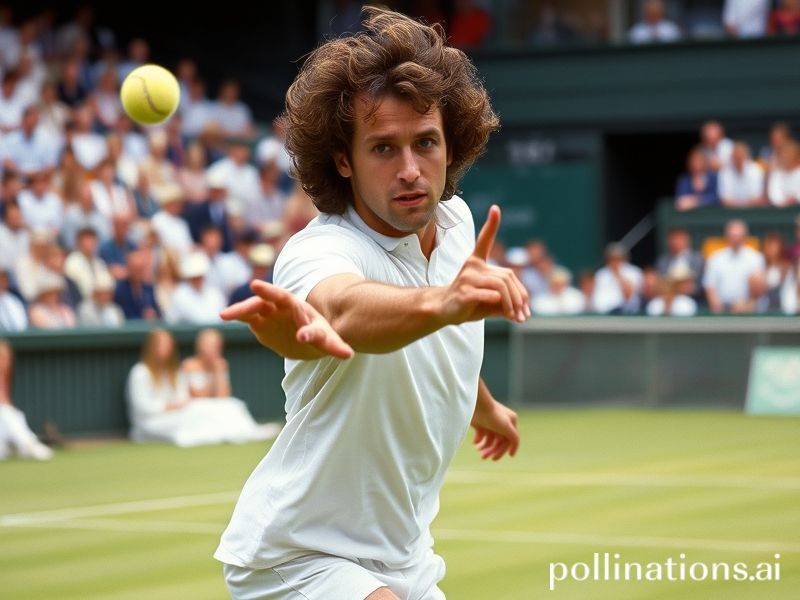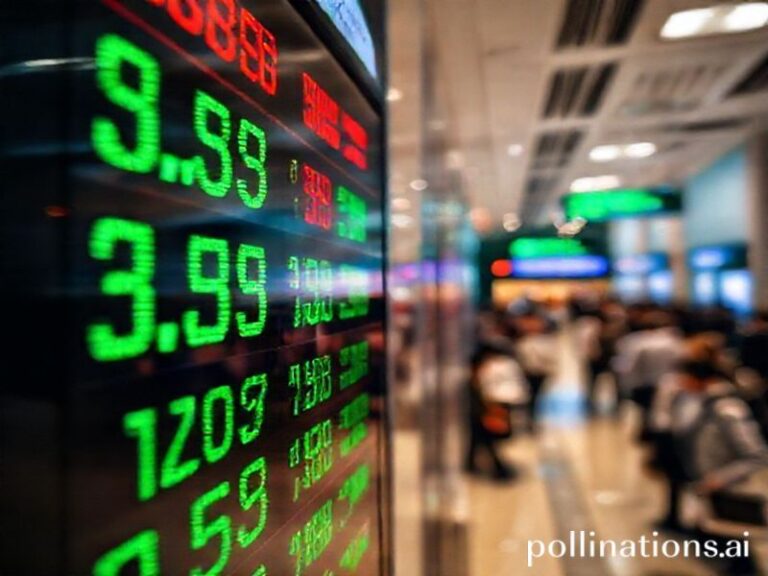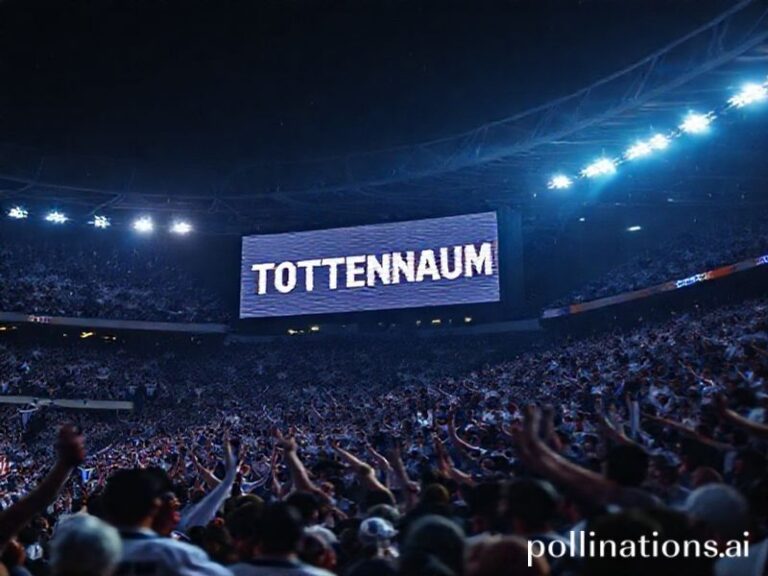McEnroe Unleashed: How the World’s Favorite Tennis Tantrum Became a Global Security Blanket
John McEnroe: The Last American Who Could Scream at Authority and Still Get Applause
By Dave’s International Desk, still picking up the pieces after another Grand Slam meltdown somewhere on the GMT timeline
PARIS—In the VIP box above Court Philippe-Chatrier, a silver-haired man in a bespoke blazer sits with the serenity of a retired apex predator. Below, a Spanish teenager just broke his racket so violently the graphite shards nearly took out a ball kid. The crowd gasps, half-horrified, half-thrilled. Upstairs, John McEnroe sips an espresso the size of a thimble and smirks like a man who patented rage before these kids were zygotes.
Welcome to the McEnroe Paradox: the only American export that improved with age, still under warranty in 104 countries, and—miraculously—immune to cancel culture despite decades of televised tantrums. In 2024, when every public outburst is clipped, subtitled, and hurled into the algorithmic coliseum within seven seconds, McEnroe’s vintage eruptions are looped as ASMR on TikTok. Gen Z finds his 1981 “You cannot be serious!” oddly comforting, like a lullaby screamed by a man in short shorts.
Global audiences have always used sport as a proxy war—less messy than the real thing and the merch sells better. During the Cold War, McEnroe’s bratty genius was the perfect anti-Soviet propaganda: capitalism in headband form, loud, entitled, and devastatingly effective. Thirty years after the Wall fell, his commentary career keeps the empire’s soft power humming. Watch any ATP match on Eurosport and witness John reduce some poor Kazakh qualifier to a tax audit in real time, all while wearing a sweater that costs more than the GDP of said qualifier’s hometown.
Europe tolerates McEnroe because he’s their pet American: fluent in irony, suspicious of optimism, and visibly allergic to corporate jargon. In Britain—where emotional repression is an Olympic sport—his unfiltered disgust is treated like performance art. The BBC even lets him co-host Wimbledon highlights, a scheduling decision akin to giving Keith Richards the keys to a pharmacy. Meanwhile, in Australia, Channel 9 markets him as “the anti-Kyrgios,” a neat trick considering Nick Kyrgios is essentially McEnroe with Wi-Fi and unresolved daddy issues.
Asia has embraced McEnroe as a living meme. Chinese streaming giant iQiyi subtitles his rants with onomatopoeia (“BOOM—existential despair!”) and sells limited-edition headbands that read “Chill? Nein!” In Japan, he’s a recurring guest on variety shows where he’s forced to taste fermented soy and pretend to enjoy it, thus completing the circle of post-war humiliation. The man who once terrorized linesmen now gamely sips miso broth while hosts squeal “Kawaii!”—proof that irony is the last universal solvent.
Of course, the darker joke is that McEnroe’s brand of rebellion is extinct. Today’s players scream into their $40 million Rolex contracts, then apologize in four languages on Instagram. The ATP fines you for breathing too aggressively, and the WTA has a PowerPoint on “constructive dissent.” Meanwhile, the real world outside the baseline offers even less room for righteous fury. Try yelling “You cannot be serious!” at airport security in any G7 nation and see how fast you discover the joys of enhanced pat-downs.
Yet McEnroe endures, a walking reminder that once upon a late-capitalist fairy tale, an individual could rage against the machine and the machine would merely sigh, “He’s box office.” Perhaps that’s why dictators, tech bros, and Davos delegates all want selfies with him: in an age of curated personalities, his volatility is the rarest vintage. He’s the last guy who could flip off a umpire and still get invited to the White House—regardless of who’s renting it at the time.
As the clay-court season drags on and another prodigy melts down in HD, McEnroe leans back in the commentary booth and mutters, almost tenderly, “He’s got potential, but he’s not angry enough.” The world nods, unsure whether to laugh, cry, or book a therapy session. Probably all three. After all, we’re still waiting for the next serve-and-volley messiah, and until then we have reruns: seven seconds of pure, uncut fury, looping forever beneath the polite applause of a planet that forgot how to scream.
Game, set, existential crisis.







